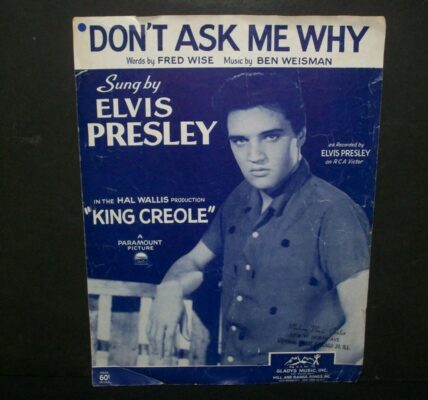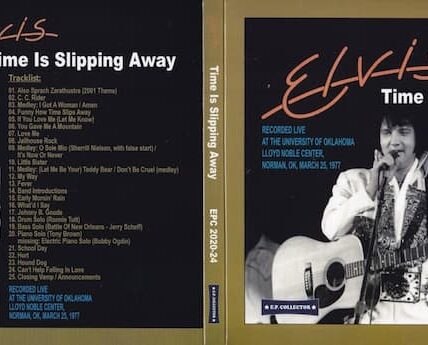Elvis Presley’s rendition of the song “Tomorrow Is A Long Time” holds a unique and captivating place in his musical journey. Dylan said it was “the one recording I treasure the most.”.0h
Introduction:
Elvis Presley’s version of “Tomorrow Is A Long Time” might not be his most recognizable song, but it holds a unique and fascinating place in his musical journey. Originally written and recorded by Bob Dylan in 1963, Elvis covered the song three years later during a session for his gospel album “How Great Thou Art.” This seemingly unlikely pairing resulted in a poignant and powerful rendition that resonated deeply with audiences and even earned praise from the original songwriter himself.
Dylan’s “Tomorrow Is A Long Time” paints a melancholic picture of a heartbroken wanderer, contemplating the uncertainties of future and longing for his lost love. While the original version carries a folk-ballad atmosphere, Elvis injected it with his signature soulful vocals and gospel-infused instrumentation, adding a layer of emotional depth and spiritual yearning. His heartfelt rendition amplifies the song’s vulnerability and longing, creating a powerful connection with listeners on a personal level.
Despite its undeniable emotional impact, “Tomorrow Is A Long Time” wasn’t an immediate commercial success for Elvis. It in itially appeared as a bonus track on the soundtrack for the film “Spinout” and didn’t chart highly. However, the song’s significance extends far beyond chart numbers.
First and foremost, Elvis’s cover garnered immense praise from Bob Dylan himself. Dylan stated that it was “the one recording I treasure the most,” recognizing the depth and sincerity Elvis brought to his interpretation. This endorsement from such a critically acclaimed artist solidified the song’s artistic merit and solidified its place in Elvis’s legacy.
Furthermore, “Tomorrow Is A Long Time” continues to resonate with listeners due to its timeless themes of loss, hope, and the unknown future. Its message of appreciating the present while acknowledging the uncertainties of tomorrow carries universal appeal, transcending generations and musical tastes. The song has been covered by various artists, appearing in films and TV shows, and even sampled in hip-hop tracks, ensuring its continued relevance in popular culture.
In conclusion, while not a chart-topping hit, Elvis Presley’s cover of “Tomorrow Is A Long Time” holds significant weight in his musical journey. It showcases his artistic depth, versatility, and ability to connect with listeners on an emotional level. The song’s timeless message and enduring legacy ensure its relevance for generations to come, reminding us to cherish the present moment and face the future with hope, even when faced with uncertainties.

